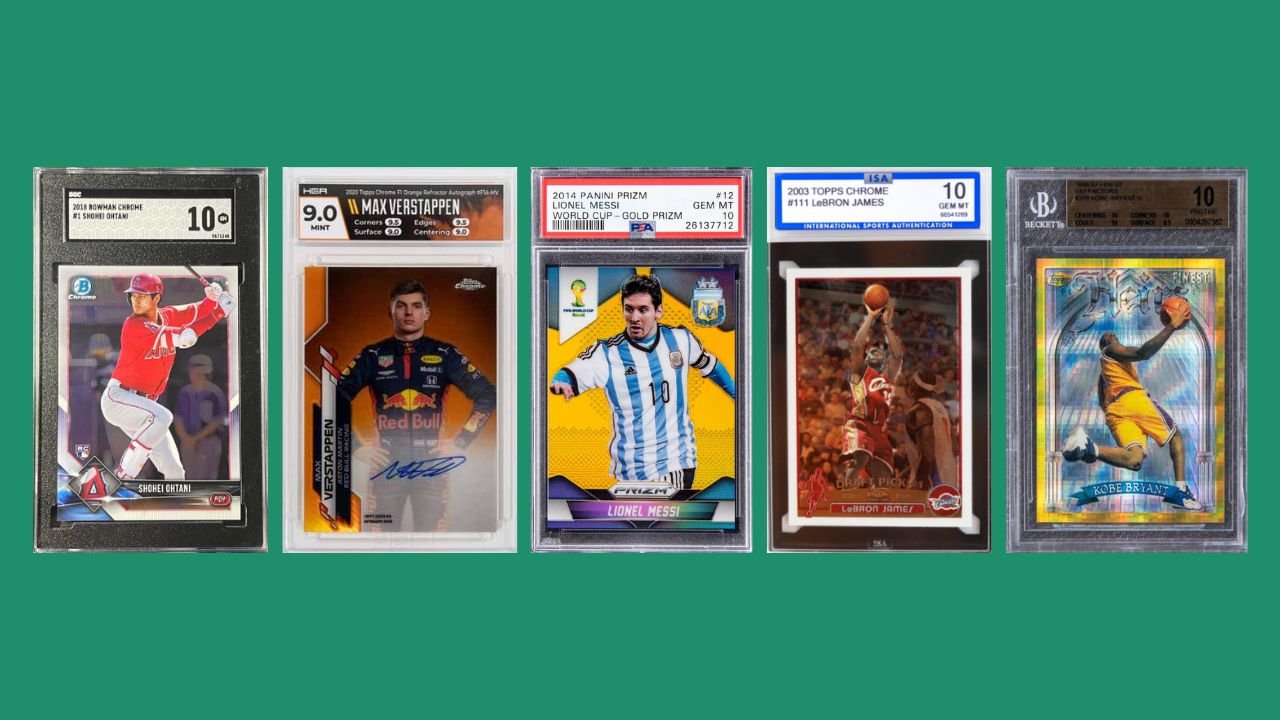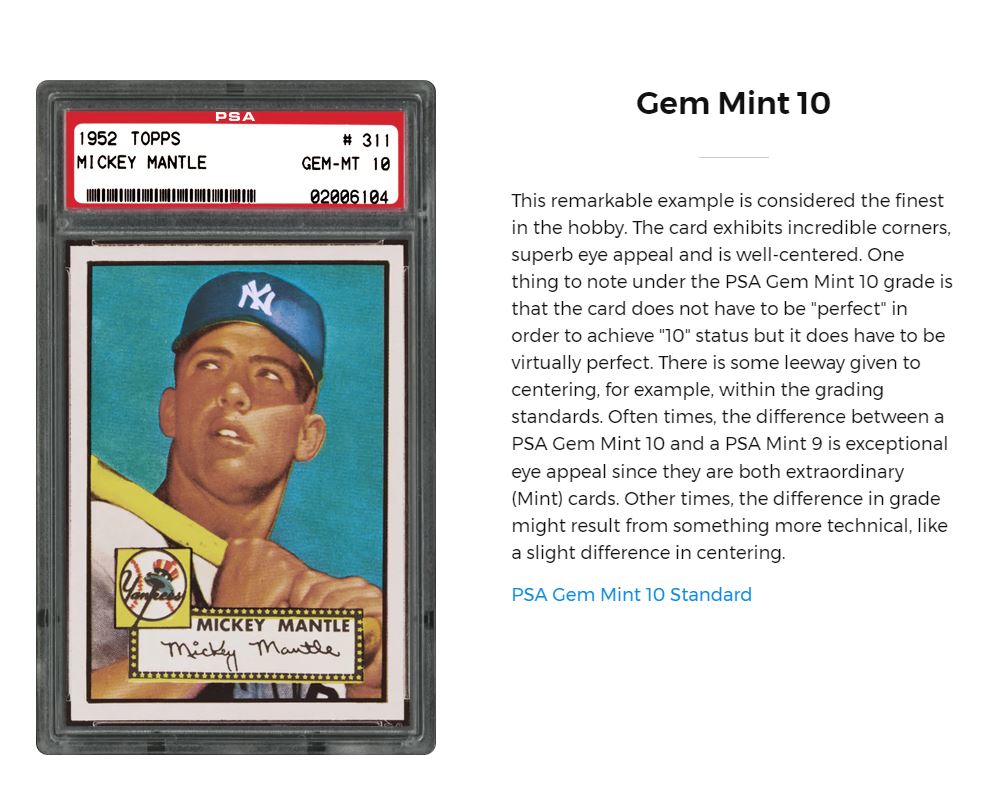
Card Grading has become a big part of the sports card collecting hobby, and it’s pretty standard practice these days to have the best cards from your collection professionally graded.
Having a trusted third party company grade sports cards can get costly, so is there a way to grade cards for free?
Summary - Key Takeaways
- There’s no way to get free professional trading card grading from companies like PSA, BGS, SGC etc.
- There are free online tools that can help you self-grade a card and get an accurate estimate of a card’s potential grade.
- Free self-grading, done properly, is useful to help decide whether to pay for professional grading.
- Card grading from top companies gives additional benefits like authentication, trust, added resale value and card protection.
Table of Contents
Can You Grade Sports Cards For Free?
Well, let me start by getting this out of the way early: If you’re looking for a way to get a card graded professionally for free, from companies like PSA, BGS and SGC, then I have some bad news for you, it’s not possible.
Professional grading companies are businesses, who aren’t going to give their service away for free, especially when their branded grading slabs/labels usually add so much resale value to cards.
Technically you might be able to get one of a group of submitted cards graded for free by them, because you might qualify for a discount based on a minimum quantity, but ultimately you’re still paying for the service for the rest of the cards, so it’s not necessarily free.
However, the definition of card grading is to physically inspect and evaluate its condition, based on multiple areas, but that doesn’t mean it has to be done by a professional third party company.
Grading companies generally have similar grading scales, which those in the hobby seem to conform with – It’s generally a 1 through 10 scale, with higher numbers indicating better condition; There are some nuances between companies, like sub-grades and half points, but the hobby generally recognizes a grade 1 being poor condition through to 10 being mint condition.
While the industry standard is to have cards graded professionally, by one of the top companies, like PSA, BGS or SGC, it doesn’t necessarily mean you have to; There are certainly ways to ‘grade’ or evaluate trading cards for free and getting an accurate score on the 1 through 10 scale, either by self-inspection, with the help of some free online tools, or by seeking outside opinion from the hobby community – I’ll go into more detail on those below.
The Benefits Of Paid Professional Card Grading
Most collectors are willing to pay for grading services, because they want the benefits that come with those paid services, which include:
Protection for the card: Once a grading company has completed the inspection of a card, and decided on its grade, they place the card into a plastic casing, which is secure and protects the card against damage.
Authentication: Professional card grading services authenticate cards and check they’re legitimate originals, so it helps verify that they’re not counterfeit.
Added resale value: Cards that have been graded and slabbed by the likes of PSA, Beckett and SGC hold a lot more value than ungraded cards. Why? Well, in addition to the protection and authentication, collectors can trust that the declared condition of the card is accurate and fair.
Card Grading for Free: DIY and Online Resources
Why Self-Grade A Sports Card?
Choosing whether to pay for companies like PSA, BGS and SGC to grade your cards, or using online tools to self-grade your cards for free should be a decision that’s made based on your needs.
I’ve just covered the benefits of paying for ‘official’ grading – If your goal is to add value for resale, or protection from the slabs, then you’ll need to pay for those services.
However, free self-grading can be useful for collectors who just want to get an idea of what condition the cards in their collection are in, which is a first step I’d always recommend before paying for grading anyway, or they want to check the authenticity – There are ways to check whether cards are authentic or fake.
Free self-grading, done correctly, can give a good and accurate indication of the grade that a card would likely achieve from one of the professional companies; Having that accurate estimate will help make the decision whether to pay for PSA, BGS or SGC etc.
I personally use tools to accurately self-grade cards, and then look at the market value of that card in the expected grade (with the label of the grading company you’d opt for) while also looking at the value of the grade up and the grade down; That way, you have the probable, best and worst case scenario, and you can decide whether the cost, and process time, of grading is worth it.
Free Online Tools To Use For Card Grading
PSA Photograde
A good place to start is with PSA’s online photograde resource; While this is predominantly applicable to PSA’s grading scale, the scales between the top grading companies are generally similar, and it helps give an indication for any of the sports card grading services.
The tool gives some high-quality image examples of cards for each grade on the scale, with some information about why the card has achieved the grade it has been assigned, so it allows for easy comparisons to your own cards.

Centering Calculator
Centering is one of the key areas on a card that is assessed during grading, and Sports Card Pro has a good online tool that helps calculate a centering score from an image of a card – It also gives you an estimated PSA/BGS centering grade.
You can also use a good old-fashioned ruler to check centering manually.
Forums For A Second Opinion
The internet helps make the world a smaller place, and with online forums, like Reddit, or Facebook groups, you have access to many like-minded collectors in the sports card hobby; It never hurts to upload images to ask for a second opinion on what grade your card is likely to achieve.

